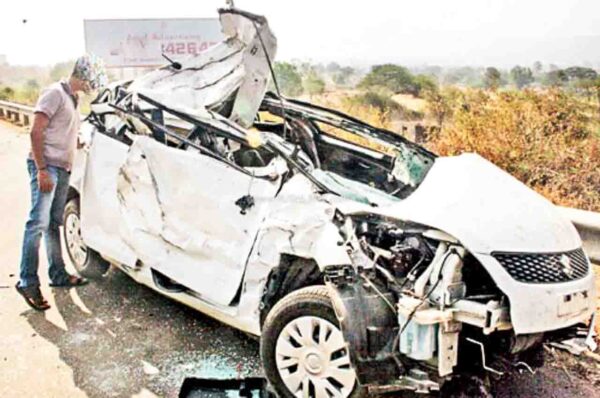Holding Insurance Companies Accountable: Act of God or Human Error? Understanding Liability in Car Accidents

In October 2010, Makarand Patwardhan lost his life in a car accident caused by a tyre burst. His colleague, also the car owner, was driving the Maruti Swift car, when the accident took place on the Pune-Mumbai expressway. Motor Accident Claims Tribunal (MACT) Pune awarded equal compensation to all claimants in 2016. However, the insurance company challenged the decision, citing the tyre burst as an Act of God. In the end, justice prevailed last month. Bombay High Court upheld the original payout order of Rs 1.25 crore, providing some solace to the grieving dependents.
The insurance company’s challenge to the verdict resulted in a prolonged legal battle. It is disheartening to note that justice took over a decade to be delivered, causing further anguish to the already grieving family. Such delays in justice delivery only highlight the need for an efficient and speedy legal system. This can provide timely redressal to victims and their families.
When Nature Strikes: Defining the Act of God in Insurance Claims
An Act of God refers to an event or natural disaster caused by natural forces beyond human control. they include earthquakes, hurricanes, floods, lightning strikes, and tornadoes. Insurance companies typically do not consider a car tyre burst as an Act of God because it is a mechanical failure that can often be prevented by proper maintenance and upkeep of the vehicle. Liability for an accident resulting from a tyre burst would typically fall on the driver or the vehicle owner.
In rare cases, a tyre burst could be considered an Act of God if it was caused by an external, unforeseeable force such as a lightning strike or sudden change in weather conditions.
Protecting Yourself on the Road: Essential Safety Tips for Drivers
Liability would depend on the specific circumstances surrounding the incident and would likely require a thorough investigation. It’s important to note that insurance companies may use the term Act of God in their policies. But the definition of what constitutes an Act of God may vary between policies and jurisdictions.
To minimize the risk of a tyre burst, it’s essential to maintain proper tire pressure, avoid overloading your vehicle, and replace your tyres as needed. It’s also a good idea to inspect your tyres regularly for signs of wear and tear or damage and to avoid driving over road hazards whenever possible.
How to Handle a Tyre Burst While Driving: Tips for Staying Safe on the Road
In the case of a tyre burst incident, you should file a claim with your insurance provider as soon as possible. The claim should include details such as the date and time of the incident, location, and a description of what happened. You may also need to provide photos and witness statements to support your claim. The insurance provider will then assess the claim and determine whether it’s covered under your policy.
If you experience a tyre burst while driving, remain calm and try to keep the car under control. Do not slam on the brakes or jerk the steering wheel, as this can cause the car to spin out of control. Instead, gradually slow down and pull over to a safe location. Call for assistance immediately. Remember to prioritize human life over everything else while on the road.

